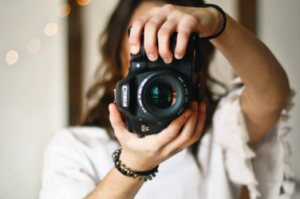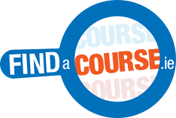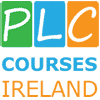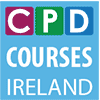
It might be that birthday present that you’re not quite sure what to do with or maybe you’re sick of having fingers protruding into your pictures, either way it’s time to get a flash of inspiration and develop your photography skills. A photography class is a great opportunity to be creative and learn or enhance a skill.
Photography classes have changed dramatically in the last ten years with more emphasis on digital photography, and while some classes will cover traditional SLR cameras, others will only concentrate on digital photography. It may be difficult to find courses on SLR cameras and film developing, although specific photography or art schools will most likely have these kinds of courses available. Other part-time classes can offer some excellent value for the more popular photography techniques and no matter how advanced the technology gets, there are some things that will never change.
Some aspects that are the basis of most photography classes today include learning about light (aperture) and controlling how much to bring in or keep out of your picture. Related to understanding light is knowing how to use shutter speed. Fancy taking one of those pictures of the stars that shows their circular trail in the night sky or making water look blurry? Understanding the effects of using different shutter speeds will help you achieve these kinds of photos. Taking photos during the day only to find later that the pictures of the important people in your life don’t have enough light is irritating and can be fixed by learning how to use light meters and flashguns. In photography courses there is also usually time spent on film sensitivity, digital sensors, and learning how the modern digital camera works. And it’s not all lights, camera, action because learning composition and how to achieve balance with an image is a crucial component of beautiful, and memorable, photographs.
Kilroy’s College offers distance education courses in photography that focuses on taking professional quality photographs. As you complete each of the lessons, you will gain photography skills that will help with your career or for personal use. This course consists of understanding how the camera works, film processing, photographic printing, presentation and finishing techniques, and finally how the photograph conveys its message.
The College of Management and IT (CMIT) also offer a distance education course in digital photography and post-production imaging. The course covers the art of taking photographs, planning a shoot, and manipulating photographs using digital software. CMIT also offer a separate version of this course with FETAC Level 6 certification that includes an assessment of photographic work and a project.
Shoot School in Ringsend, Dublin offers some very interesting courses including those dealing with video techniques and mastery for DSLR cameras.
Malahide Community School offers beginner photography classes which focus on composition and style, while building technical ability. The school also offers a course on digital cameras which provides instruction on storing, editing, enhancing (such as removing red eye and perform other improvements), printing and e-mailing your digital images.
Photography is most commonly a hobby but many people turn their interest into something greater. There are many photography competitions and generally there is always a market for good photography. Newspapers and magazines are readily available outlets for talented photographers. There are all kinds of events people will pay to have photographed, including sporting, social and local events. It may not be lucrative (at first) and can even be hard if your photos don’t get the recognition you think they deserve. Photography courses are a great way to learn about these avenues and opportunities and where you can usually find a sympathetic ear and helpful advice.
To see a wider range of photography courses on Findacourse.ie, view https://www.findacourse.ie/courses/photography/


 Distance Learning and Online Courses are offered in a number of different formats, these include correspondence courses (by post), online via computer or a combination of online and classroom instruction (blended learning).. View
Distance Learning and Online Courses are offered in a number of different formats, these include correspondence courses (by post), online via computer or a combination of online and classroom instruction (blended learning).. View  Further Education and PLCs (Post Leaving Cert Courses) have become a popular alternative to the CAO system here in Ireland. PLC Courses are validated by QQI (Quality & Qualifications Ireland) at levels 5 & 6 of the NFQ.. View
Further Education and PLCs (Post Leaving Cert Courses) have become a popular alternative to the CAO system here in Ireland. PLC Courses are validated by QQI (Quality & Qualifications Ireland) at levels 5 & 6 of the NFQ.. View  Continuous Professional Development (CPD) helps to keep job skills and professional knowledge up to date and ensures the standard of registrations & qualifications are maintained.. View
Continuous Professional Development (CPD) helps to keep job skills and professional knowledge up to date and ensures the standard of registrations & qualifications are maintained.. View  Evening courses and part time learning options are a great way to enhance a CV, to socialise and make friends, as well as learn something completely new. There are an abundance of night courses and evening classes available.. View
Evening courses and part time learning options are a great way to enhance a CV, to socialise and make friends, as well as learn something completely new. There are an abundance of night courses and evening classes available.. View